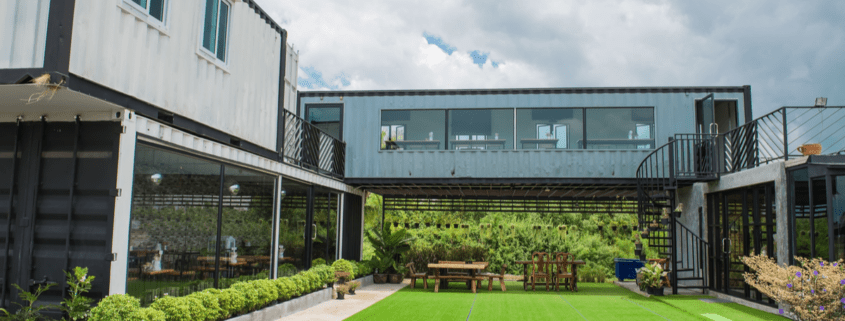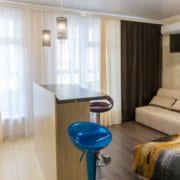Pop-Up Hotels: The New Alternative to Traditional Lodging & Airbnb
The hospitality industry is currently experiencing a shift in demand, with increasing pressure from short-term rentals, evolving consumer expectations, and a somewhat uncertain economic outlook. Alternative accommodations in particular are revolutionizing the lodging market. In 2018, the 10 cities with the largest Airbnb market share in the United States lost an estimated 1.3% in hotel nights booked and 1.5% in hotel revenue. As the battle for market share rages on between traditional hotels and short-term rental disruptors, one new concept may provide an alternative that helps the hotel industry to maintain strongholds within primary target markets.
Pop-up hotels are gaining attention as the latest concept to evolve out of new consumer trends, and these flexible lodging solutions could be a game changer for the hospitality industry.
What Are Pop-Up Hotels?
A pop-up hotel is a collection of modules that is mobile and thus does not remain in one physical location. Each module is its own hotel room, which is about the size of a commercial storage container. Generally, these modules can be set up and torn down in around or under 24 hours.
Pop-up hotels combine two popular lifestyle trends: pop-up spaces (where short-term tenants leverage vacant venues with temporary installations) and micro-living (single-occupant housing that is between 200 and 400 square feet). As active participants in the experience economy, Millennials in particular are driving these trends. When they travel and book lodging, many in this demographic seek out unique experiences that are FOMO-inducing and Instagram-worthy. And the flexible nature of this type of lodging means that pop-up hotels can be relocated to meet fluctuating demand related to events or based upon seasonal traffic.
How Could Pop-Up Hotels Impact the Lodging Market?
Pop-up hotels are an emerging concept with the potential to shake up the hospitality industry. Below we explore just a few ways this lodging alternative may impact the market.
Improved Mobility
Considering that traditional hotels have no mobility at all, the mobile nature of pop-up hotels is going to be the most appealing feature of this type of lodging and provide the most opportunities. Rather than being tethered to one location, these alternative short-term living modules can be transported to various locations to meet demand from seasonal events such as sporting events, music festivals, conventions, or even natural disaster recovery efforts, helping increase revenue in locations where stationary accommodations experience fluctuations in demand.
A Unique Consumer Experience
Pop-up hotels offer something that traditional hotels do not—they are exciting. Capitalizing on the environmentally conscious, experiential generation of Millennials, who now spend over $1 trillion annually, pop-up hotels offer a one-of-a-kind experience to the consumer. Consider the popularity of retail theatres and food halls in the retail and dining industries. Providing value in the form of entertainment and creating a unique consumer experience has proven successful in these settings.
A Possible Land Grab
If pop-up hotels gain traction in US markets, we could see a lift in demand for vacant land to accommodate them. These lots could be leased out to hotels to be utilized with minimal development. This land could serve multiple purposes across industries, thus blurring the lines between different markets. For example, a site next to a sporting arena could serve as an all-purpose pop-up space for restaurants, retail marketplaces, or temporary hotels, all depending on the types of events taking place at the nearby venue. These spaces would need to be flexible and anticipate tenant needs such as plumbing and electric connectivity, but they present some serious opportunities.
Ability to Create Demand
One appealing aspect of pop-ups is that they are only around for a limited time. This temporary nature makes them more desirable because consumers don’t want to miss out on an opportunity, a phenomenon that is known as the “fear of missing out” among marketers and advertisers. Pop-up hotels could become a sector of the lodging industry that consumers track and flock to because they appear in surprise locations. In fact, the hospitality industry would have the power to manufacture demand by leveraging their transient, here-today-gone-tomorrow nature.
The potential of pop-up hotels to disrupt the hospitality industry is huge, but this concept also presents a possible opportunity to evolve with consumer demand and see new surges in profitability.
You may also be interested in Space as a Service: The New Business Model Impacting CRE











